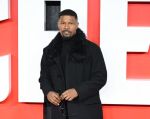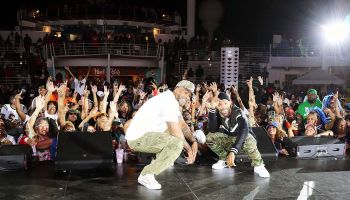FILE – This March 18, 2011, file photo shows Tennessee head coach Bruce Pearl speaking to players in the first half of a West Regional NCAA tournament second -round college basketball game against Michigan, in Charlotte, N.C. A person with knowledge of the decision says says Tennessee has fired Pearl after a season that saw the coach charged with unethical conduct for lying to NCAA investigators during a probe into recruiting. The person spoke on condition of anonymity because the university has not announced the firing. (AP Photo/Bob Leverone, File)
Bruce Pearl is hardly the first coach to cheat and-or lie to NCAA investigators, just one of the very few whose transgressions already cost him a job and could wind up costing him a career.
Cold as it sounds, sacrificing Pearl might be worth the trouble if it deterred others from taking the same low road.
It won’t.
The NCAA enforcement people love to say that every case they consider involves “a distinctive set of facts.” No doubt. But their rulings say otherwise.
Justice is rarely denied for those caught red-handed, but delayed? If your team has an opportunity to make money for the swells in charge of the postseason for either of the big revenue-producing sports — football and basketball — there’s never a rush.
Not coincidentally, the exception has both a name and a place in the NCAA’s tortured rulebook — “a unique opportunity.”
Former Auburn quarterback Cam Newton didn’t have to squeeze through that loophole to play in the Bowl Championship Series title game two months ago; NCAA investigators simply took Newton at his word that he had no idea his father was shopping him around to at least one other school, asking for nearly $200,000 in exchange for Cam’s signature on a letter of intent.
But the “unique opportunity” escape clause is exactly how five members of Ohio State’s football team remained eligible for the Sugar Bowl after being caught selling jerseys, championship rings and trophies to a local tattoo parlor owner.
Instead, the five-game suspension handed down will be served at the start of next season, which coincides with the soft part of the Buckeyes’ schedule.
Cynical as that seemed at the time, it gets even worse. Turns out Jim Tressel was tipped off to the violations more than nine months ago and hid it from the NCAA, his school’s compliance department and even the higher-ups. He went so far to mislead Ohio State’s internal investigators as recently as December before coming clean earlier this month.
Ohio State’s response was a two-game suspension, plus clawing back $250,000 from Tressel’s salary, estimated at $3.5 million annually.
With the possibility of an even more severe punishment from the NCAA hanging over his head, Tressel finally apologized and asked OSU athletic director Gene Smith to tack on an additional three games, contending “my mistakes need to share the same game sanctions.”
Like Pearl’s former employer, Tennessee, Ohio State is hoping that self-punishment is harsh enough to keep the NCAA from inflicting any more.
Pearl lost his job after his team lost an NCAA tournament game to Michigan by 30 points, apparently running up against the unwritten rule that administrations will tolerate cheating, but not cheating and losing.
It’s worth remembering in the middle of March madness that football coaches and players aren’t the only ones turning up in the NCAA docket.
Connecticut basketball coach Jim Calhoun was handed a three-game suspension for failing to maintain “an atmosphere of compliance” — translation: running an out-of-control program. UConn was also hit with scholarship reductions, recruiting restrictions and three years’ probation, but Calhoun’s penalty doesn’t take effect until next season, allowing him to roam the sideline for however long the Huskies keep advancing in the tournament.
UConn may have been surprised the NCAA piled some extra penalties atop those the school imposed on itself, but not the delayed justice afforded Calhoun. The NCAA makes 90 percent of its revenue from the tournament — the current TV contract covers 14 years for $10.8 billion, or about $700 million per year — and the one constant in the punishment the organization metes out is its reluctance to mess with rainmakers such as Tressel and Calhoun while it’s raining money.
The kids who help make that possible don’t appear to get the same breaks, especially those who play at the less-glamorous programs.
Former Oklahoma State receiver Dez Bryant was suspended for an entire football season after lying to investigators about going out for lunch with former NFL star Deion Sanders. Kansas State basketball players Jacob Pullen and Curtis Kelly were suspended just hours before a game after getting “improper benefits” at a department store.
Likewise, Baylor’s Perry Jones was found to have received those same benefits and handed a six-game suspension, but his began with the team’s Big 12 tournament game.
Citing both the Newton and Ohio State cases, athletic director Ian McCaw argued Baylor’s team “received a disparate outcome in relation to other recent high profile cases.”
Anytime the NCAA cares to explain its rationale, we’re all ears. The people who run college sports push the notion that what they’re protecting is amateurism and not the monied interests. But all the lying going on at every level below them is done in the service of preserving that bigger lie.

















